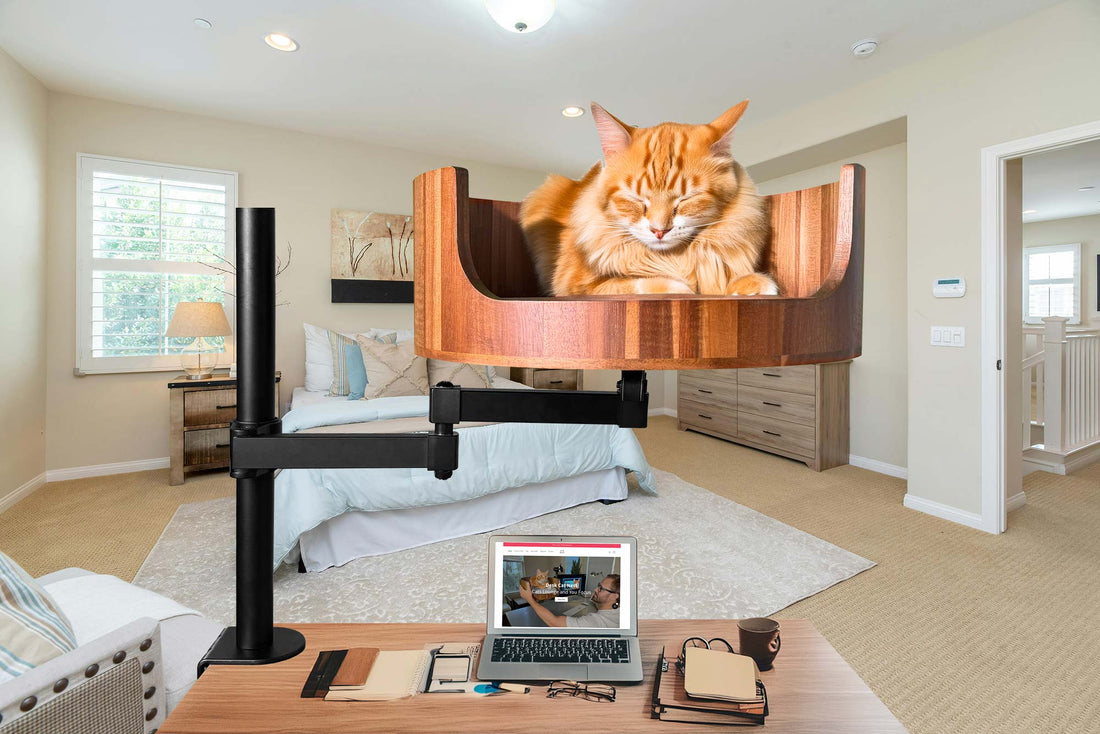
Why Does My Cat Act Like a Dog? Understanding Feline Behavior
Share
Have you ever wondered why your cat seems to act more like a dog than a typical feline companion? If you have caught your cat fetching toys, wagging its tail, or even following you around like a loyal dog, you are not alone. This fascinating behavior is not uncommon in the world of cats, and understanding the reasons behind it can provide insight into your pet's unique personality and needs.
In this article, we will delve into the complex world of feline behavior to explore why some cats exhibit dog-like traits. From possible genetic factors to environmental influences, we will uncover the reasons behind your cat's surprising behaviors. By gaining a better understanding of your cat's actions, you can strengthen the bond between you and your four-legged friend and ensure that they are happy and healthy in their home environment. So, if you have ever marveled at your cat's dog-like antics, stay tuned to unlock the mysteries of feline behavior.
1. Cats exhibiting dog-like behaviors may result from their social and environmental upbringing.
2. Cats can mimic behavior they observe from other animals in their environment, including dogs.
3. Feline behavior can be influenced by the need for social interaction and companionship.
4. Understanding a cat's individual personality and preferences can help identify reasons for dog-like behavior.
5. Providing appropriate enrichment and social interactions can help address any underlying causes of cat-dog behavior.
Instinctive Behaviors
Cats are known for their independent and aloof nature, but some felines may exhibit behaviors commonly associated with dogs. This can be attributed to certain instinctive behaviors that cats may display, such as following their owners around the house, playing fetch, or greeting them at the door. These actions may stem from a deep-rooted desire for attention, companionship, or simply a way to communicate their needs.
Imprinting and Socialization
Another reason why cats may act like dogs is due to their early experiences with humans during the critical period of imprinting and socialization. Cats that have been exposed to a variety of people, animals, and environments at a young age are more likely to develop sociable and outgoing personalities, resembling those of dogs. This early imprinting can shape their behavior and interactions with their owners for the rest of their lives.
Genetics and Breeds
Certain cat breeds are more predisposed to exhibiting dog-like traits than others. For example, the Maine Coon is known for its affectionate and dog-like behavior, often following their owners around, playing fetch, and even walking on a leash. Other breeds, such as the Abyssinian or Ragdoll, may also display more sociable and interactive behaviors that are reminiscent of dogs. These genetic predispositions can influence how a cat behaves and interacts with its human family.
Environmental Influences
The environment in which a cat is raised can also play a significant role in shaping its behavior. Cats that are raised in a stimulating and enriching environment, with plenty of social interaction, playtime, and mental stimulation, are more likely to exhibit dog-like behaviors. Conversely, cats that are deprived of these social and environmental stimuli may become more withdrawn, fearful, or aggressive. Providing a positive and engaging environment for your cat can help foster sociable and interactive behaviors akin to those of a dog.
Frequently Asked Questions
Why does my cat act like a dog?
There could be several reasons why your cat is exhibiting dog-like behavior. It could be due to their individual personality, a need for attention or stimulation, or even a lack of proper cat enrichment. Cats are known for their curiosity and playfulness, so they may exhibit behaviors that mimic those of dogs to express themselves.
Can the Desk Cat Nest help with my cat's dog-like behavior?
Yes, the Desk Cat Nest can provide your cat with a comfortable and secure space of their own. Having a designated area for your cat to rest, play, and observe their surroundings can help reduce stress and anxiety, which may contribute to their dog-like behavior.
Will the Desk Cat Nest encourage my cat to act more like a cat?
While we can't guarantee a complete change in behavior, providing your cat with a cozy and stimulating environment like the Desk Cat Nest can encourage natural cat behaviors. Cats are more likely to display their unique characteristics and instincts when they feel safe and comfortable in their surroundings.
Is the Desk Cat Nest easy to assemble?
Yes, the Desk Cat Nest is designed to be easy to assemble with simple instructions included. It requires no tools for setup, making it convenient for cat owners of all skill levels.
Can multiple cats use the Desk Cat Nest?
Yes, the Desk Cat Nest is spacious enough to accommodate multiple cats if they are comfortable sharing space. It can be a cozy spot for them to rest together or take turns enjoying the elevated view.
In conclusion, providing your cat with a comfortable and cozy space, such as the Desk Cat Bed, can help address the issue of why your cat may be acting like a dog. The Desk Cat Bed offers a safe and secure spot for your feline friend to relax and unwind, ultimately promoting their natural feline behaviors and instincts. With its soft cushioning and durable design, this cat bed is a valuable choice for cat owners looking to provide their pets with a sense of security and comfort. Invest in a Desk Cat Bed today to give your cat the perfect place to rest and be themselves.



















































